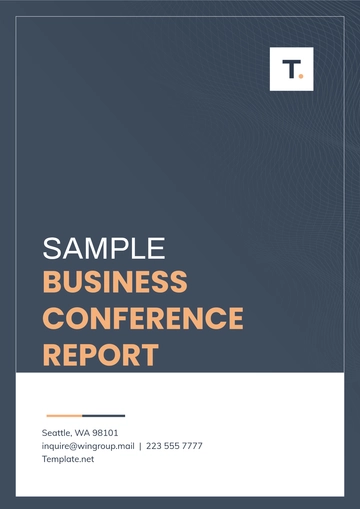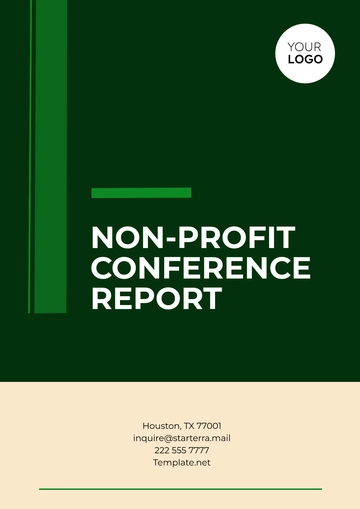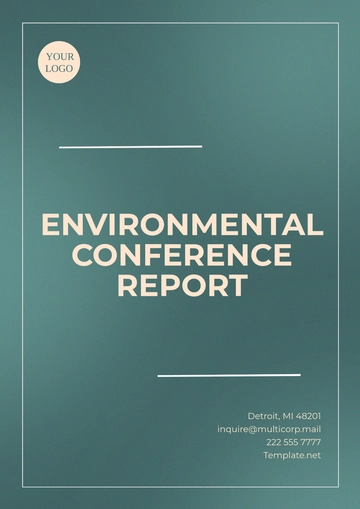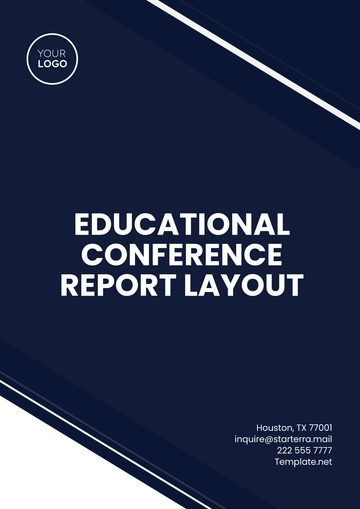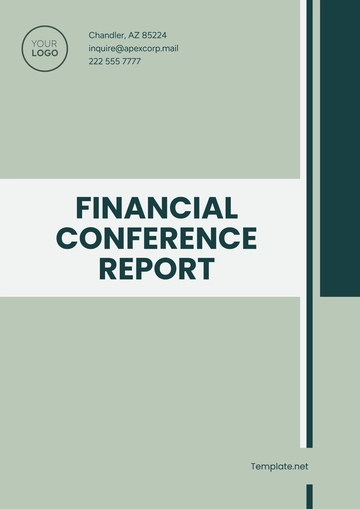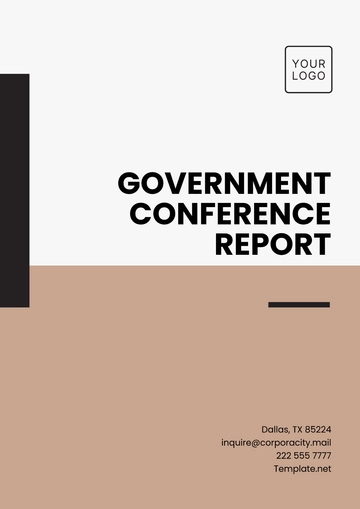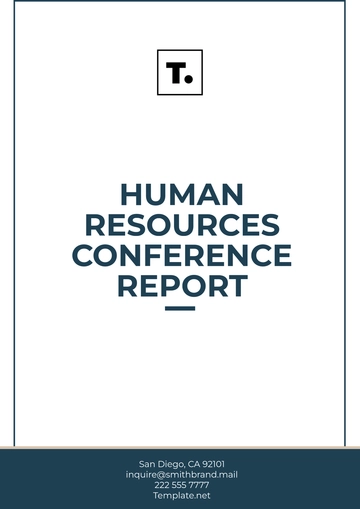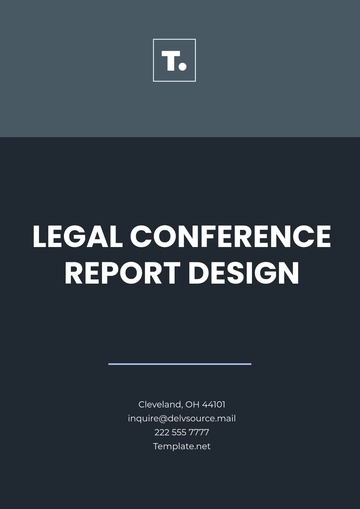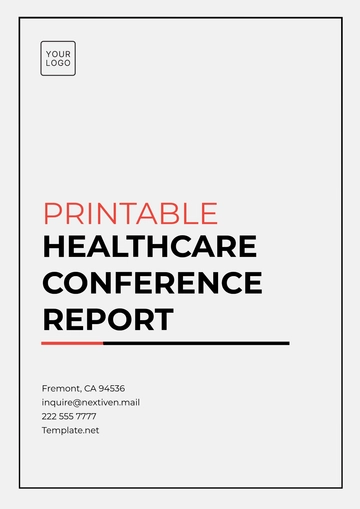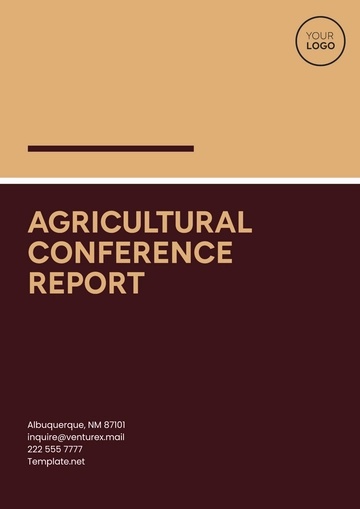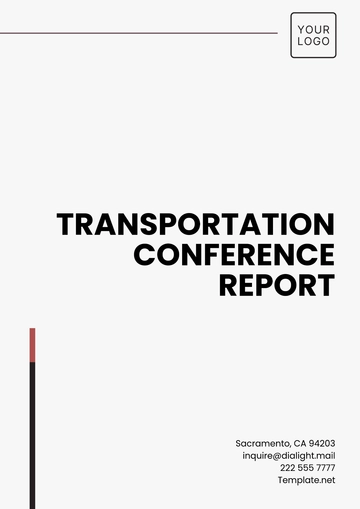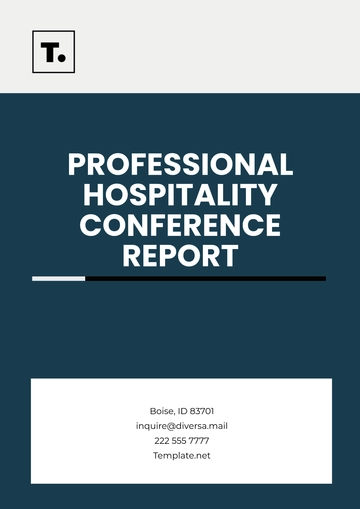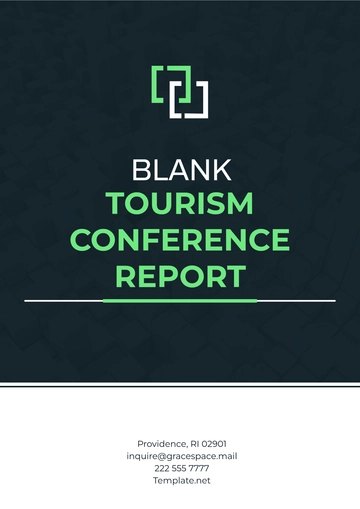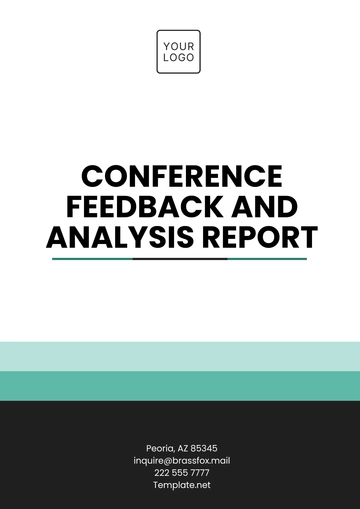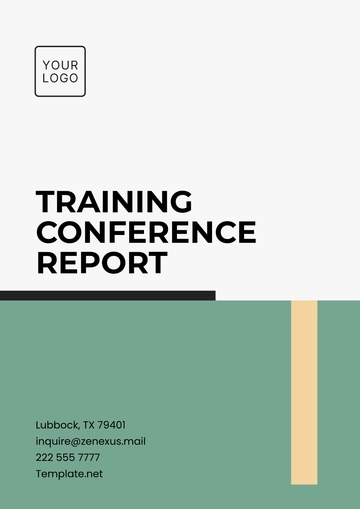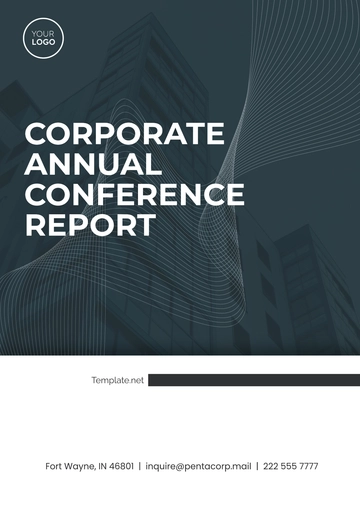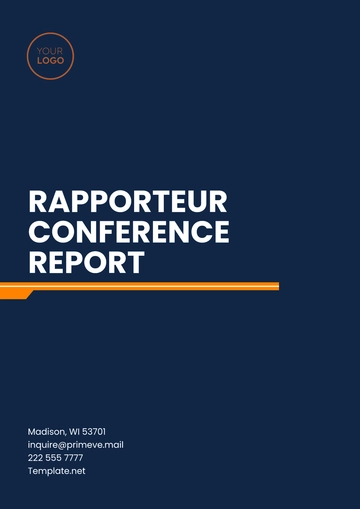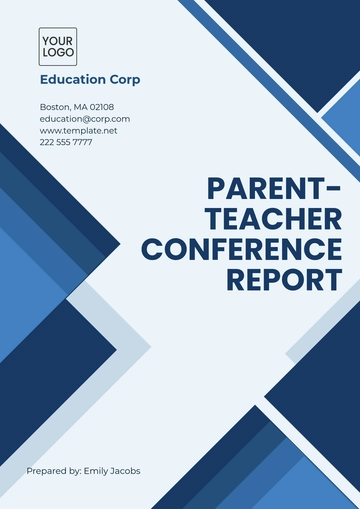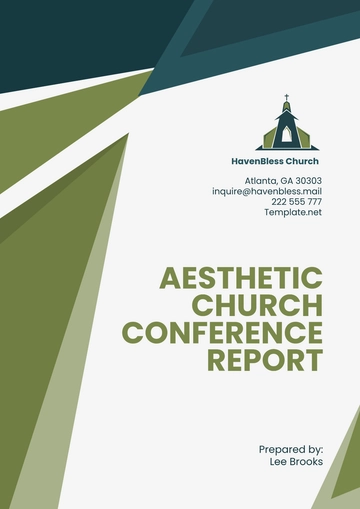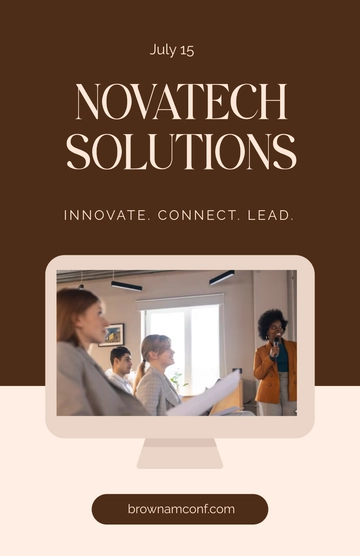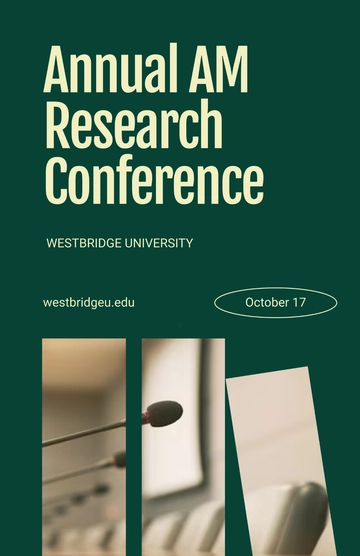Free Government Conference Report
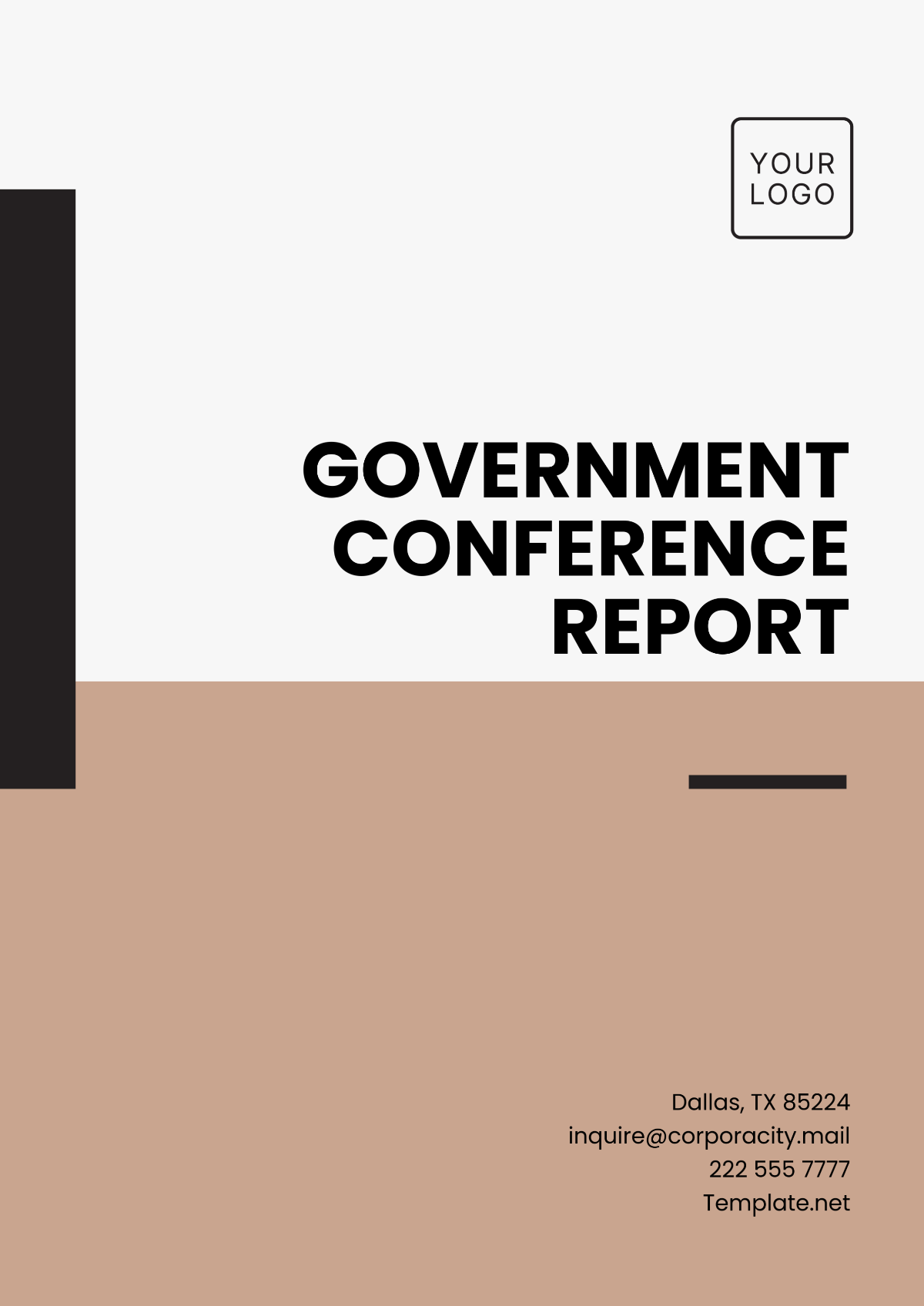
Prepared by:
[YOUR NAME]
[YOUR COMPANY NAME]
Introduction
The Government Conference held on November 15, 2050, brought together key policymakers, public administrators, and industry leaders to discuss pressing issues in governance and public policy. The conference was designed to explore innovative solutions for enhancing government efficiency, ensuring economic sustainability, and fostering international cooperation on global challenges. Attendees participated in various sessions focused on creating transparent, effective, and resilient government systems capable of addressing the complexities of the modern world.
Key Highlights
Opening Remarks
The conference began with an inspiring keynote address by Dr. Emily Johnson, a renowned expert in public policy and governance. Dr. Johnson emphasized the necessity of adapting government structures to the rapidly changing global landscape. She stressed the importance of fostering trust in government institutions through accountability, transparency, and active citizen participation.
Panel Discussions
Several expert panels explored critical issues affecting contemporary governance:
Reforming Public Institutions for the Future: A panel of experts discussed strategies for reducing bureaucratic inefficiencies and enhancing government responsiveness through streamlined processes and digital tools.
The Role of Technology in Modern Governance: Panelists explored how emerging technologies like artificial intelligence, blockchain, and big data can revolutionize public administration and decision-making, providing more personalized and efficient services to citizens.
Sustainable Governance and Climate Change: Experts addressed the intersection of governance and environmental sustainability, emphasizing the urgent need for policies that prioritize climate action, green energy, and sustainable urban development.
Workshops
In-depth workshops allowed participants to dive into practical solutions and tools for addressing governance challenges:
Digital Transformation in the Public Sector: Government officials from around the world shared experiences and best practices for implementing digital systems that enhance service delivery, improve citizen engagement, and safeguard data privacy.
Crisis Management and Public Health Responses: This workshop focused on strategies to strengthen government responses to crises, from pandemics to natural disasters. Emphasis was placed on cross-sector collaboration and the effective use of technology in managing emergencies.
Keynote Speaker's Insights
Dr. Emily Johnson outlined the evolving role of governments in an interconnected world, underscoring the importance of creating adaptive, agile institutions. She urged policymakers to embrace innovation and data-driven decision-making, which can help governments better respond to both long-term challenges and unexpected crises. Dr. Johnson also highlighted the growing need for governments to engage citizens through transparent communication and participatory governance.
Outcomes and Recommendations
Strengthening Digital Government Initiatives: Participants unanimously agreed on the need to accelerate the digital transformation of public services. This includes the widespread adoption of e-government platforms, digital citizen services, and enhancing the cybersecurity infrastructure to protect sensitive data.
Fostering Public-Private Collaboration: A major recommendation from the conference was the need for greater collaboration between the public and private sectors. Public-private partnerships (PPP) were recognized as crucial for delivering large-scale infrastructure projects and addressing societal challenges, such as affordable housing and renewable energy deployment.
Enhancing Governance Transparency and Accountability: Experts advocated for the implementation of transparency tools, including public access to real-time government data and decision-making processes. This would foster public trust and ensure that policy decisions align with the needs of the citizens.
Investing in Human Capital: Governments were urged to prioritize the professional development of public servants, focusing on skills related to technology, data analytics, and global governance. Such investments will create a more adaptable and future-ready workforce in the public sector.
Commitment to Climate-Resilient Policies: In light of the ongoing climate crisis, the conference called for governments to implement policies that support green infrastructure, reduce carbon emissions, and promote the adoption of renewable energy sources. Special attention was given to the importance of aligning economic growth with environmental sustainability.
Conclusion
The Government Conference served as an invaluable platform for sharing knowledge, fostering partnerships, and generating solutions for the complex challenges facing governments worldwide. With actionable recommendations and renewed commitments to transparency, innovation, and collaboration, the event provided a clear roadmap for building more effective and sustainable governance structures for the future. The discussions and insights shared at this conference will undoubtedly shape the policies and strategies of governments as they navigate the evolving global landscape.
- 100% Customizable, free editor
- Access 1 Million+ Templates, photo’s & graphics
- Download or share as a template
- Click and replace photos, graphics, text, backgrounds
- Resize, crop, AI write & more
- Access advanced editor
The Government Conference Report Template from Template.net is fully editable and customizable to suit your needs. With our AI Editor Tool, you can effortlessly modify the content, structure, and design to create a professional and tailored report. Ideal for documenting government-related events, this template ensures clarity and precision in your presentation.
You may also like
- Sales Report
- Daily Report
- Project Report
- Business Report
- Weekly Report
- Incident Report
- Annual Report
- Report Layout
- Report Design
- Progress Report
- Marketing Report
- Company Report
- Monthly Report
- Audit Report
- Status Report
- School Report
- Reports Hr
- Management Report
- Project Status Report
- Handover Report
- Health And Safety Report
- Restaurant Report
- Construction Report
- Research Report
- Evaluation Report
- Investigation Report
- Employee Report
- Advertising Report
- Weekly Status Report
- Project Management Report
- Finance Report
- Service Report
- Technical Report
- Meeting Report
- Quarterly Report
- Inspection Report
- Medical Report
- Test Report
- Summary Report
- Inventory Report
- Valuation Report
- Operations Report
- Payroll Report
- Training Report
- Job Report
- Case Report
- Performance Report
- Board Report
- Internal Audit Report
- Student Report
- Monthly Management Report
- Small Business Report
- Accident Report
- Call Center Report
- Activity Report
- IT and Software Report
- Internship Report
- Visit Report
- Product Report
- Book Report
- Property Report
- Recruitment Report
- University Report
- Event Report
- SEO Report
- Conference Report
- Narrative Report
- Nursing Home Report
- Preschool Report
- Call Report
- Customer Report
- Employee Incident Report
- Accomplishment Report
- Social Media Report
- Work From Home Report
- Security Report
- Damage Report
- Quality Report
- Internal Report
- Nurse Report
- Real Estate Report
- Hotel Report
- Equipment Report
- Credit Report
- Field Report
- Non Profit Report
- Maintenance Report
- News Report
- Survey Report
- Executive Report
- Law Firm Report
- Advertising Agency Report
- Interior Design Report
- Travel Agency Report
- Stock Report
- Salon Report
- Bug Report
- Workplace Report
- Action Report
- Investor Report
- Cleaning Services Report
- Consulting Report
- Freelancer Report
- Site Visit Report
- Trip Report
- Classroom Observation Report
- Vehicle Report
- Final Report
- Software Report

